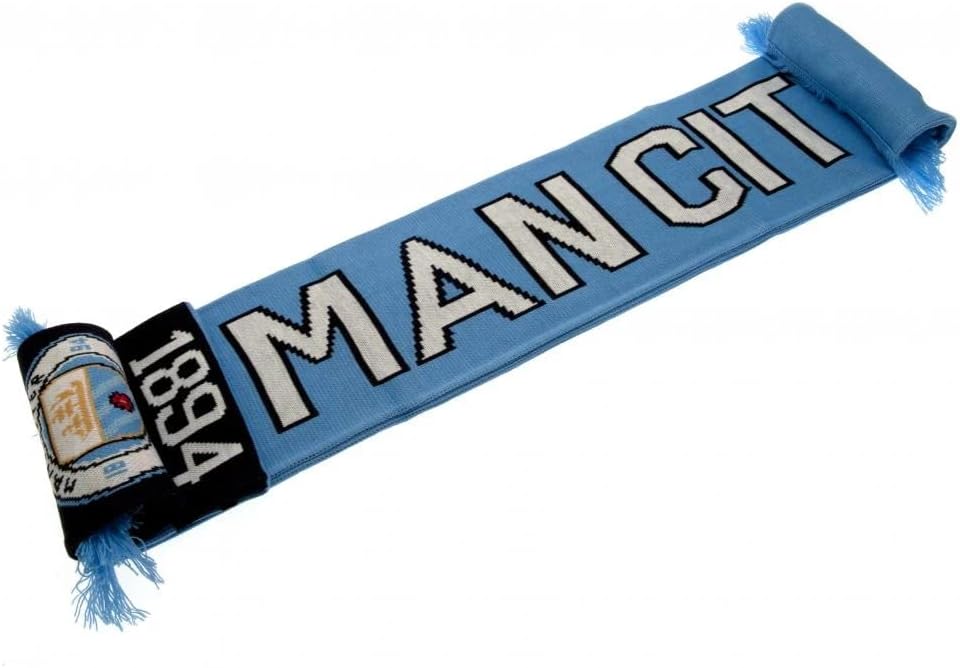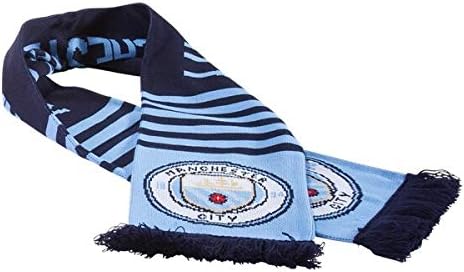Why are the established European Elite bigger than other clubs?
By: Ted Fred Franky, Refuting misinformation, June 6, 2023 1 year ago
How the ‘big clubs’ really got big
The polished answer (and what they and their supporters would like to believe) is that these clubs have won the most trophies in their respective countries and have grown through success. The truth is actually very different for each one, they have had significant financial investment and arguably dodgy dealings to get them where they now are.
Arsenal
Arsenal won their first trophy in the 1930s, they were the 40th English club to lift a trophy. They did it in a way that had never been done before, and no club has ever done it since. They already had the notoriety of being the only English club to play in the top flight not on merit but by some clandestine voting system that saw a 5th placed Arsenal promoted in 1920 ahead of teams finishing 3rd and 4th.
Herbert Chapman had steered Huddersfield Town to two league titles between 1923-1925, only the second team to do so. Arsenal did the unthinkable, they poached Herbert Chapman by doubling his wages to £2,000 a year and some of his best players followed him, along with all time Sunderland record goal scorer Charlie Buchan. Arsenal then went on to finsh second to Huddersfield in 1925-1926, before finally winning the league themselves three times in a row between 1932-1935.
At the time an FA inquiry found that Charlie Buchan had secretly received illegal payments from Arsenal as an incentive to sign for the club, thus breaking the maximum wage. Sir Henry Norris was indicted for his part and banned from football, but Chapman escaped punishment. Arsenal Football Club received no punishment despite the competitive advantage they had gained. (reference)
If ever a team bought promotion to the top flight, bought the league and bought their place in history through cheating, it is probably Arsenal Football Club.
Liverpool
In 1956, John Moore’s sold his Littlewoods empire, which included Littlewoods Pools, Littlewoods Department Stores and the Littlewoods Catalogue, to become the 6th richest man in England. Subsequently, he poured money into Second Division outfit Liverpool and his money guided them to success under Bill Shankly, Joe Fagan, Bob Paisley and Kenny Dalglish.
After the formation of the Premier League and Champions League, John Moores could no longer dominate financially and Liverpool went into decline during the 1990s until the arrival of Jurgen Klopp. Such was Liverpool’s decline that when the European Super League plans were first put together in 2016 they weren’t even one of the “Big Seven” clubs that put the league togehter. Der Spigel European Super League
They had brief spells of modest success under Gerard Houlier and Rafael Benitez, but this was all based on spending money they didn’t have, leading to the total collapse of the club in 2011. Only a bail out of £500m by the current owners saved Liverpool from administration. Continued equity financing of the club circumventing FFP, has ensured they are now a force again.
Manchester United
Manchester United profited from the Manchester City scandal of 1905, whereby they purchased five star players including Manchester City’s legendary striker Billy Meredith.
Manchester City had won the FA Cup in 1904 and were the best team in England and needing only a win on the last day of the following season at Aston Villa to win the league for the first time. Apparently, the referee threw the game, disallowing two City goals, and not awarding several penalties. Apparently the Football League (still dominated by the Aston Villa and Preston chairmen who had set up the Football League) wanted a non Lancashire club to win the league to help promote the game across the country. They made no secret of their preferred winners (Sheffield Wednesday). After the final whistle, an enraged Billy Meredith led angry City players into the referees changing room and throttled the referee. In response, Meredith and his associates were banned from playing for City for 5 years, with Meredith accused of match fixing!
Such was Billy Meredith’s disgust with what happened he organised the group of players and formed the Professional Footballers Association. To stick two further fingers up to the FA, they went on and helped United lift the FA Cup and League title twice. That was United’s only success before ending a 45 year barren run in 1956. After serving his ban, Billy Meredith returned to his beloved Manchester City to finish his career playing including a remarkable FA Cup run at the age of 50!
Thirty years later in the 1930s, Manchester City had become the team of Manchester, with the 89,000 capacity Maine Road hosting the biggest crowds in English football. In contrast, United attendances had slumped to a pitiful 8,000. On the brink of bankruptcy a local brewer called John Gilbert poured money into Manchester United to keep the club going. After the war he financed the rebuilding of Old Trafford and financed the creation of the Busby Babes. Players were seemingly plucked from under the noses of the big clubs of the day. Players like Duncan Edwards from Wolves, and Newcastle legend Jackie Milburn’s nephew Bobby Charlton.
The whole deceit and rule breaking was uncovered in ITVs 1980 World In Action expose. The then current Manchester United chairman and owner Louie Edwards made money by selling rotten meat to local schools for school dinners and used his secret slush fund to attract players in the 60s and 70s, one which was certainly in use under previous owner John Gilbert in the 1950s.
Just like Arsenal, this club looks like it cheated its way to the top.
Bayern Munich
Bayern Much had achieved nothing in German football, they had never even won a trophy and that all changed with the 1968 Olympics. Before then they competed with Munich 1860 for local pride, when one team was doing well they would pull attendances of around 20,000-25,000, with the other getting gates of around 10,000-15,000. When the other team did well the attendances flipped.
You can see this effect here on the European Football Attendances Database. You’ll notice that the mighty Bayern Munich only have higher attendances than 1860 after the 1966 Olympics, and have average attendances higher than City on only 5 occasions, in 20 years shown.
| Year | Bayern Munich | Munich 1860 | CITY |
| 1981/1982 | 33,372 (2nd in Germany) | 11,763 (21st) | 34,063 (4th in England) |
| 1980/1981 | 36,412 (1st) | 24,294 (8th) | 33,587 (3rd) |
| 1979/1980 | 39,579 (1st) | 29,735 (5th) | 35,272 (3rd) |
| 1978/1979 | 34,153 (4th) | 15,658 (19th) | 36.203 (4th) |
| 1977/1978 | 30,876 (6th) | 27,812 (7th) | 41.687 (3rd) |
| 1976/1977 | 31,550 (5th) | 20,109(14th) | 40.058 (3rd) |
| 1975/1976 | 32.971 (2nd) | 14,026 (18th) | 34,280 (4th) |
| 1974/1975 | 36,412 (2nd) | 22,895 (7th) | 32,898 (5th) |
| 1973/1974 | 37,588 (2nd) | 20,059 (10th) | 30,756 (7th) |
| 1972/1973 | 33,353 (1st) | 13,824 (20th) | 32,351 (7th) |
| 1971/1972 | 27,882 (2nd) | 15,694 (20th) | 38.573 (6th) |
| 1970/1971 | 24,088 (3rd) | 11,572 (23rd) | 31,041 (9th) |
| 1969/1970 | 23,324 (4th) | 20,588 (8th) | 33.930 (10th) |
| 1968/1969 | 25,029 (3rd) | 14,824 (17th) | 33,750 (9th) |
| 1967/1968 | 21,706 (10th) | 19,324 (13th) | 37,223 (6th) |
| 1966/1967 | 22,353 (15th) | 24,824 (11th) | 31,208 (11th) |
| 1965/1966 | 26,294 (8th) | 31,353 (2nd) | 27,739 (23rd) |
| 1964/1965 | 12,622 (20th) | 28,933 (8th) | 14,753 (33rd) |
| 1963/1964 | 12,737 (20th) | 32,267 (4th) | 18,201 (30th) |
| 1962/1963 | 19,467 (7th) | 23,667 (3rd) | 24,683 (11th) |
After the 1968 Olympics both clubs moved to the 60,000 all seater athletics stadium. Bayern Munich however received heavy financial backing from the Bayer Motor Group, which involves car manufacturers such as Porsche, VW and BMW. Within a few years Bayern Munich won the Bundesliga and lifted the European Cup. Their attendance grew to around 30,000-40,000 and things really took off as other German clubs started receiving huge financial support from local industry, with SC Hamburg poaching Kevin Keegan off European Champions Liverpool, who helped them become European Champions themselves. This kicked off a financial war in the 1980s in the Bundesliga with more and more money being poured in to the clubs with Bayern Munich receiving the most and they won more trophies and soon they were regularly filling the Olympic Stadium.
To this day all the established Bundesliga clubs are heavily bank rolled by local industry, ensuring low ticket prices for fans. In the absence of large TV deals, every club in the Bundesliga is entirely dependent on the financial support it gets from local industry to survive. This is the same kind of support Manchester City gets from their owners which people like Karl Heinz Rummenigge and co object to.
Real Madrid
General Franco supported by Adolf Hitler took control of Spain through a violent civil war in the 1930s. As a fascist he ruled with an iron fist until his death in 1975. As a symbol of his centralised power he ensured Madrid was wealthy and everything about Madrid was to be the best in Spain. He bank rolled Real Madrid to win the first 5 European Cups and after his death the local and national government in Madrid continued this support.
The most high profile known recent event being the purchase of Real Madrid’s training ground in 2001 for 400 Million Euros to clear Real Madrid’s debt. A new training ground was built for use by Real Madrid after the purchase, the net effect being 245 Million Euros of debt was cleared. However, the Madrid Regional Council paid well over the true value for the land, thus funding Real Madrid.
Barcelona
Like most Spanish teams, they become focal points of dissent when the country was ruled by fascist dictator Franco. As a symbol of dissent Barcelona have become the symbol of Catalonian nationalism, and the separatist movement. Similarly to Real Madrid, the local council provided heavy funding and alowances along with support from locals and local businesses.
Whilst this may seem to be a purist way for a football club to grow, the growth is associated with politics rather than sport. It should be noted that both the Canadian FA and Australian FA have banned football clubs from having nationalist associations, becuase it is discriminatory and incites conflict. Many football clubs in these coutries have had to change their names and abandon these historic links.
Juventus
Bank rolled by the Angelli Family and their vast fortune from their motor companies Fiat and Ferrari.


